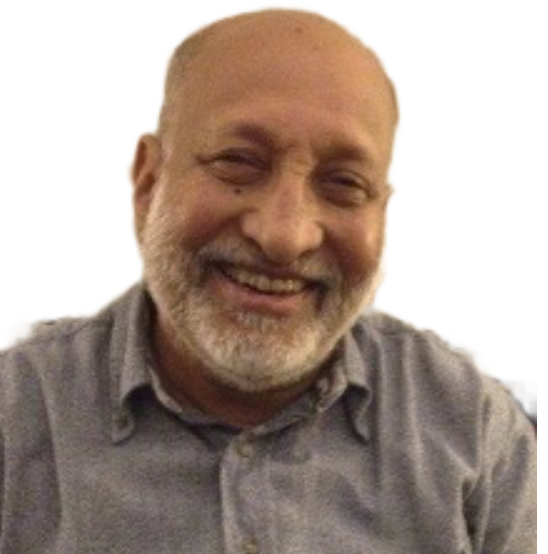Bennett to stick with apartheid?
THE SWEARING-IN of Prime Minister Naftali Bennett, the leader of Israel’s pseudo-fascist Yamina party, and his Cabinet inaugurates an era for Israel without Benjamin Netanyahu in power.
Many Israelis think that this chimera of an ultra-rightist-centrist-liberal-Arab government is going to crumble soon over policy differences. If it doesn’t, what kind of an era that Bennett and the real architect of the government, Yair Lapid of the centrist Yesh Atid party, are going to usher in?
Four of the eight political parties in the coalition government are rightist or religious. They don’t believe in equal rights for the Palestinians, who make up 20 percent of the Israeli population. The Palestinians are, in fact, living under an apartheid system under Israeli occupation. Is this regime going to restore real democracy in Israel? Or is it going operate as the last colonial power in the Middle East? And that in the 21st century?
In 2015 when the Bennett was education minister, his policy of immersing science students in Torah and Mishna education prompted Haaretz writer Uri Misgav to warn Israelis that their country was “on the road to theocracy.”
Israel’s problem, he wrote, “is that religion is not separate from government, and over the years it has also become less and less separate from right-wing West Bank settler politics,” which at one point was spearheaded by Bennett.
Israeli society and politics have since been soaking deeper in ultra-Orthodox and Orthodox Judaism. Are Bennett and other right-wing politicians in the coalition going to step back and let the four centrist and liberal parties restore democracy and sanity in Israeli public life? Can they, given their rightist and fundamentalist constituencies?
Israel had started out as a secular crypto-socialist state in 1948 under Prime Minister David Ben-Gurion. Religious surge in the Israeli public life began three decades later under Prime Ministers Menachem Begin and Yitzhak Shamir. That, in fact, coincided with the Shiite Islamic revolution in Iran, the rise of Hindu nationalism in India and Islamist movements in many Sunni Muslim countries. More recently, Buddhist religious politics have been swirling in several South and Southeast Asian counties.
The renewed religious pursuit in politics worldwide reflects, partly, a deepening crisis in of liberalism. Liberalism and the attendant rational inquiry promoted science, technology and the pursuit of amenities for happiness and comfort. That spurred a centuries-long orgy of production and consumption of material things for individual happiness, downgrading people’s moral and human obligations to societies. We all are beneficiaries of it, but it has also triggered a dog-eat-dog scramble for material goods, warfare and violence.
Disillusioned by the liberal materialistic paradigm and the disruption of families and communities, people are grasping at their moral roots, usually inhering in ethnic communities and religious traditions and cultures. Many Western philosophers, sociologists and anthropologists have come to recognize this as a logical trend. The late Peter Berger, a foremost American sociologist who had been a devotee of secularism for decades, woke up to a “de-secularization of the world” and attributed it to a “cultural revolution” he saw sweeping Muslim societies for a century and a half. The famed Canadian philosopher Charles Taylor has been writing about “post-secular” societies. And the celebrated German philosopher Jurgen Habermas, who like Berger, used to dismiss the intrusion of religious values in the public sphere, now and vouches for the legitimacy of religious concerns and viewpoints in the public space.
Voters in most of the countries undergoing religious revival have had the sense not to turn their governments over to religious parties. Except for Iran and briefly for Egypt, no Muslim country has had voted for an Islamic government. That includes the Islamic Republic of Pakistan. Indian Hindus have, of course, kept a Hindu nationalist government in power for seven years, but its governance has more to do with Muslin-bashing than setting up a Hindu theocracy.
Israel seems to an exception so far. I can see two obvious reasons for that. One is the blind American support or tolerance for Israel in its subjugation, dispossession and persecution of Palestinians. Under the superpower protection, Israeli rightists and Jewish supremacists have not yet had to face an accounting for their faith-based apartheid system and subjugation and persecution of Palestinians. We saw that, again, three weeks ago when President Biden blocked four U.N. Security Council calls for a ceasefire the Israeli-Hamas conflict, slaughtering 254 Palestinians and 12 Israelis.
Secondly, the Jewish religion basically doesn’t recognize the rights or dignity of non-Jews. The Talmud and Halakhic laws don’t permit “even temporary presence” of Gentiles in the midst of Jews except “when Jews are in exile, or when the Gentiles are more powerful than the Jews.” The Halakhah requires Jews to utter curses while passing by non-Jewish cemeteries, and while passing by a Gentile home, ask God to destroy it. All these are reflected in Israeli culture and right-wing political parties’ attitudes and policies toward the Palestinians. Albert Einstein turned down an invitation to become president of Israel, complaining that Israel’s Herut party was “closely akin in its organization, methods, political philosophy and social appeal to the Nazi and Fascist parties.”
For Israel to function as a normal state it needs to reform the extreme features of its religious laws, at least as they relate to politics. I am glad that Netanyahu, who stoked religious bigotry for political purposes, is out of his job now. It’s about time Israel had its own Martin Luther, whose Protestant Reformation pulled Christianity out of its age of bigotry and unfreedom into the era of religious tolerance and social progress.
- Mustafa Malik, the host of this blog, worked for decades as an American journalist and researcher. He’s now an international affairs commentator Bangladesh.

